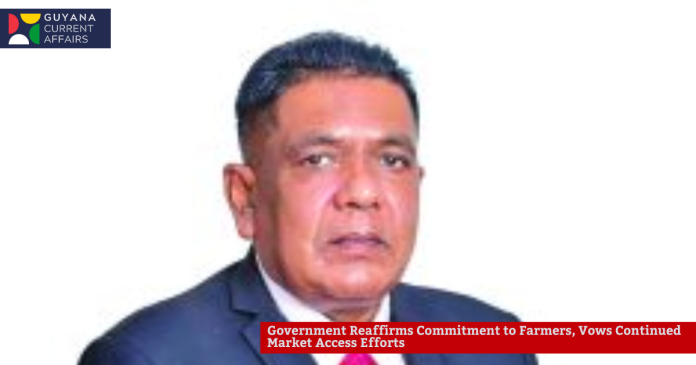Agriculture Minister Zulfikar Mustapha has reiterated the government’s unwavering support for Guyana’s farmers, assuring them that efforts to secure new and more lucrative markets for their produce will continue, even as global commodity prices fluctuate.
Speaking recently amid rising concerns from rice farmers in Region Six over falling international rice prices, Minister Mustapha emphasized that the government has never neglected the agricultural community and remains proactive in addressing their challenges. He highlighted the government’s intervention last year when rice millers were unable to pay the standard $4,000 per bag for paddy. To ensure farmers received a fair price, the government subsidized $300 per bag, bridging the gap and maintaining the $4,000 rate for the crop.
Minister Mustapha acknowledged that while world market prices for rice are projected to decline further, the government is actively seeking sustainable solutions. “We will continue to work to find markets—more lucrative markets for farmers’ paddy. I am hoping that by the next crop we can have a better price,” he stated, noting ongoing efforts to expand exports to destinations such as the Dominican Republic and other Caribbean and international markets.
Additional measures have also been implemented to ease farmers’ burdens. Transportation costs for rice farmers on the Essequibo Coast, for example, have been reduced by removing ferry tolls for trucks carrying paddy or rice. The government’s financial support is substantial, with nearly $2.7 billion projected in subsidies for rice prices and an additional $2 billion allocated for fertilizer distribution. Each acre of cultivated land will receive a bag of fertilizer, further easing input costs for farmers.
The Ministry of Agriculture, through the Guyana Rice Development Board, continues to provide extension services, reduced-cost seed paddy, and in some cases, free seed paddy to support cultivation. These interventions are complemented by broader government policies offering tax concessions, waived import duties on agricultural machinery and agrochemicals, and significant investment in drainage, irrigation, and farm-to-market infrastructure.
Minister Mustapha urged farmers to remain engaged and to carefully manage their investments, especially as the sector navigates global price volatility. The government’s message remains clear: farmers are never neglected, and every effort will be made to ensure their livelihoods are protected and their produce reaches profitable markets.


